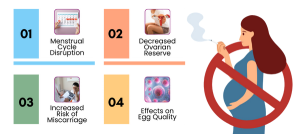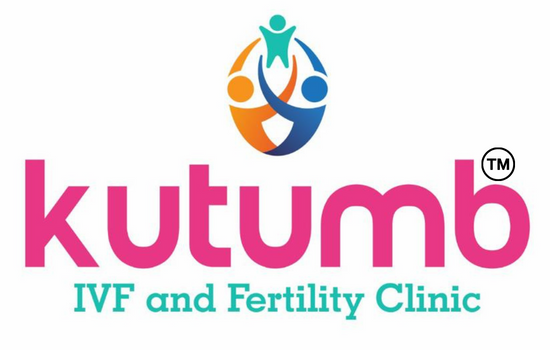Smoking is widely known to have detrimental effects on overall health, but its impact on fertility is often underestimated. Both men and women who smoke face increased risks of infertility and complications in conceiving. Here, we will focus on how smoking affects men’s fertility and the specific risks associated with it.
 Men’s Fertility and Smoking
Men’s Fertility and Smoking
Smoking can significantly impair male fertility. The harmful chemicals in cigarettes, such as nicotine, tar, and carbon monoxide, can lead to various reproductive health issues, including:
1. Sperm Quality: Smoking reduces the quality of sperm. It decreases sperm count, motility (the ability of sperm to move), and morphology (the shape and structure of sperm). This makes it more difficult for sperm to fertilize an egg.
2. DNA Damage: The toxic substances in cigarettes can cause DNA fragmentation in sperm, leading to genetic abnormalities. This can increase the risk of miscarriages and congenital disabilities in offspring.
3. Hormonal Imbalance: Smoking affects the endocrine system, leading to imbalances in reproductive hormones like testosterone. Lower testosterone levels can reduce libido and sexual performance, further complicating efforts to conceive.
4. Erectile Dysfunction: Smoking is a major risk factor for erectile dysfunction (ED). The restricted blood flow due to damaged blood vessels can result in difficulties achieving or maintaining an erection.
5. Oxidative Stress: The oxidative stress caused by smoking can damage sperm cells and the reproductive organs, leading to reduced fertility.
 Risks for Men
Risks for Men
The risks for men who smoke and are trying to conceive are considerable. They extend beyond just the physical attributes of sperm and delve into overall reproductive health. Here are some specific risks:
1. Reduced Fertility: Men who smoke are more likely to experience reduced fertility compared to non-smokers. This is due to the combined effects of lower sperm quality, hormonal imbalances, and erectile dysfunction.
2. Genetic Risks to Offspring: The DNA damage in sperm can lead to genetic defects in the offspring. This increases the risk of miscarriages, developmental issues, and health problems in children born to fathers who smoke.
3. Increased Time to Conception: Couples where the male partner smokes often take longer to conceive. This delay can be stressful and emotionally taxing for both partners.
4. Higher Risk of Infertility Treatments: Smokers are more likely to require assisted reproductive technologies (ART) such as IVF to conceive. Even with ART, the success rates can be lower for smokers compared to non-smokers.
5. Impaired Semen Parameters: Studies show that smokers have poorer semen parameters, including lower semen volume, reduced sperm concentration, and decreased total sperm count. These factors significantly reduce the chances of natural conception.
 Women’s Fertility and Smoking
Women’s Fertility and Smoking
Smoking has significant implications for women’s fertility, affecting various aspects of reproductive health. Here’s a closer look at how smoking impacts female fertility:
1. Menstrual Cycle Disruptions: Smoking can lead to irregularities in the menstrual cycle, including shorter or longer cycles, and irregular ovulation. This inconsistency can make it difficult for women to predict their most fertile days, thus reducing the chances of conception.
2. Decreased Ovarian Reserve: Smoking accelerates the loss of eggs (ovarian reserve) in women, leading to a reduced number of viable eggs available for fertilization. This decline in ovarian reserve can contribute to infertility or difficulty conceiving as women age.
3. Increased Risk of Miscarriage: Smoking increases the risk of miscarriage among pregnant women. The harmful chemicals in cigarettes can interfere with the implantation of the embryo in the uterus or affect the development of the fetus, leading to higher miscarriage rates.
4. Effects on Egg Quality: Smoking can adversely affect the quality of eggs, making them more prone to genetic abnormalities. This increases the likelihood of failed fertilization or embryo implantation, reducing the chances of a successful pregnancy.
 Risks for Women
Risks for Women
Aside from fertility implications, smoking poses various health risks specifically for women:
1. Reproductive Organ Damage: Smoking can damage the reproductive organs in women, leading to conditions such as cervical cancer, ectopic pregnancy, and pelvic inflammatory disease (PID). These conditions can further complicate fertility and overall reproductive health.
2. Early Menopause: Women who smoke are more likely to experience early menopause compared to non-smokers. Early menopause not only reduces fertility but also increases the risk of osteoporosis and other health issues associated with hormonal changes.
3. Reduced Effectiveness of Fertility Treatments: Smoking can diminish the effectiveness of fertility treatments such as in vitro fertilization (IVF). It can reduce the success rates of these procedures and increase the likelihood of complications during pregnancy.
4. General Health Risks: Smoking increases the risk of various health problems, including cardiovascular diseases, respiratory issues, and cancers. These health risks can impact overall well-being and exacerbate reproductive health challenges.
 If Your Partner Smokes, Does It Impact Your Pregnancy Chances?
If Your Partner Smokes, Does It Impact Your Pregnancy Chances?
When considering the impact of smoking on pregnancy chances, it’s crucial to understand how a partner’s smoking habits can affect fertility:
1. Reduced Fertility in Men: Men who smoke may experience reduced fertility due to several reasons:
• Sperm Quality: Smoking can impair sperm motility (movement) and morphology (shape), making it harder for sperm to reach and fertilize an egg.
• Sperm Count: Smoking can lower sperm count, reducing the overall number of viable sperm available for fertilization.
• DNA Damage: Smoking increases the presence of harmful chemicals (like reactive oxygen species) in semen, which can damage sperm DNA and affect fertility.
These factors combined can decrease the likelihood of conception if the male partner smokes.
2. Secondhand Smoke and Female Fertility: Even if the female partner does not smoke, exposure to secondhand smoke can still impact fertility:
• Menstrual Irregularities: Secondhand smoke exposure has been linked to menstrual cycle irregularities in women, similar to those observed in active smokers. This can affect the timing of ovulation and reduce fertility.
• Miscarriage Risk: Secondhand smoke exposure during pregnancy increases the risk of miscarriage, as the harmful chemicals can affect fetal development and placental function.
Therefore, if your partner smokes, it’s essential to consider the potential impact on both male and female fertility when trying to conceive.
 The Impact on a Newborn Baby
The Impact on a Newborn Baby
Smoking doesn’t just affect fertility; it can also have lasting consequences on a newborn baby’s health and development:
1. Low Birth Weight: Babies born to mothers who smoke during pregnancy are more likely to have low birth weight. This is because smoking restricts blood flow to the placenta, reducing the oxygen and nutrients available to the developing fetus.
2. Premature Birth: Smoking increases the risk of premature birth, where the baby is born before completing the full term of pregnancy (typically 37 weeks). Premature babies may face health complications and require intensive medical care.
3. Respiratory Issues: Babies born to smoking mothers are at higher risk of respiratory problems, such as asthma and respiratory infections. Secondhand smoke exposure after birth can also exacerbate these issues.
4. Developmental Delays: Children exposed to smoke during pregnancy may experience developmental delays, including cognitive and behavioral problems later in life. The toxins in cigarette smoke can affect brain development in the womb.
5. Long-Term Health Risks: Children born to parents who smoke are more likely to become smokers themselves later in life. This perpetuates the cycle of smoking-related health risks across generations.
Conclusion
In conclusion, smoking exerts detrimental effects on both male and female fertility, significantly impairing reproductive health and increasing the challenges of conception. For couples in Vizag seeking fertility solutions, addressing smoking cessation is crucial to optimize outcomes. Choosing the Best IVF Center in Vizag that offers specialized care and supports lifestyle modifications can enhance the chances of successful conception and promote overall reproductive wellness. By prioritizing comprehensive care that addresses both male and female factors, couples can navigate the complexities of infertility with informed guidance and tailored treatment options.
